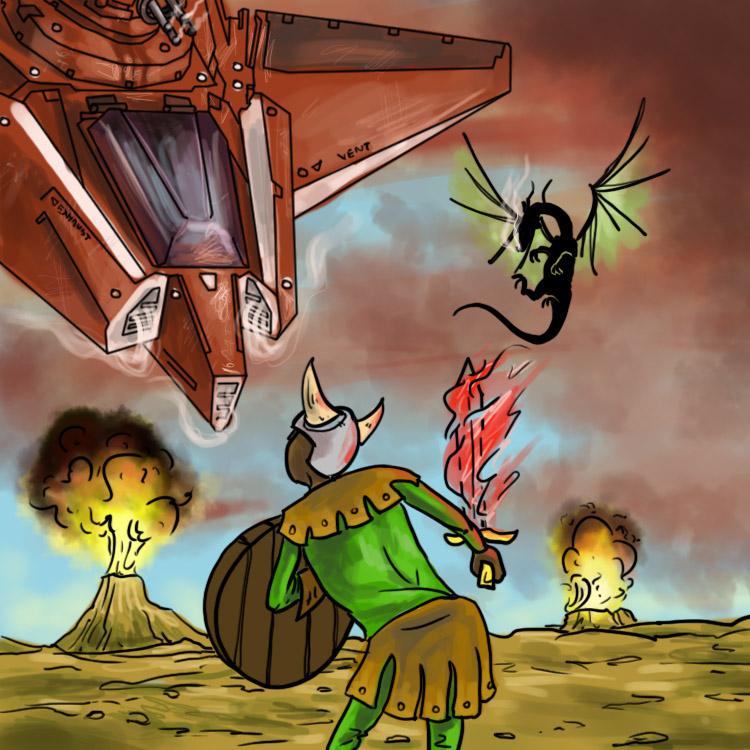Stop playing video games and start living in the real world. If you’re anything like the rest of the younger generation, you have probably heard a similar string of complaints from aggravated parents and teachers alike.
If not, you’ve certainly been preached to about the dangers of excessive gaming and the overuse of technology in general. Still, millions of people across the world continue to play video, computer and, more recently, smartphone games. Clearly, there has to be something the technological naysayers are missing.
In a fascinating 2010 TED talks interview, game designer Jane McGonigal passionately discusses her research into the benefits of a video gaming culture and concludes to us that, “gaming can make a better world.” With the goal of rendering it “as easy to save the world in real life as it is to save the world in online games,” McGonigal proposes that all of us need to spend the next decade “playing bigger and better games.”
In order to pinpoint the most efficient way of achieving this, we first have to examine the ease and pleasure, which ‘existing’ and solving problems in virtual worlds can bring. According to McGonigal, gaming enables us to “become the best version of ourselves.”
Your ‘gaming self’ is almost always a more confident, motivated and optimistic being whose connection with others and the world is intensely heightened through constant support and positive feedback.
McGonigal uses the online game World of Warcraft as a prime example of this phenomenon. In the game, you are not only designated tasks which are just within your ability to achieve, but you are also blessed with the trust and aid of a bevy of other individuals.
Oh, and don’t forget the fact that you consistently receive things like “plus-one strength and plus-one intelligence” for climbing higher and higher through the levels.
With so much positive incentive, it’s no wonder millions of people choose to spend a significant amount of time inhabiting virtual worlds as opposed to our own considerably bleaker one. Any issue, no matter how challenging, is fair game to when you’re playing a game.
Therein lies the problem. Real life tends to suffocate the optimistic gamer underneath its gritty substantiality, and I think it’s common knowledge that solidarity and assistance are much harder to come by on Earth than in any virtual reality.
McGonigal’s attempted solution to this was creating a series of ‘socially conscious games’ such as 2007’s World Without Oil, 2008’s Superstruct and 2010’s Evoke.
The point of these games was to channel the passion and mastery of skill, which gamers so clearly possess in their virtual worlds into the solving of prominent issues in the real world.
Well, that may sound nice on the page, but how many avid, young gamers do you think are actually going to be excited about playing a game like “World Without Oil?” Jane McGonigal’s powerful message is mostly directed at the younger generation and, being apart of the younger generation, I can say that I honestly have little interest in her games. And it’s not just me.
“Those types of games [McGonigal’s] do not appeal to the majority of gamers,” said Sonoma State senior Jessica Shubbie. “Most people nowadays want to play games that have violence in them; maybe because it’s a possible outlet for people to release their rage and anger.”
However, Shubbie (an avid gamer herself) goes on to say that she believes playing games with people does help to build stronger bonds and trust between individuals.
“I personally have connected with friends and family through video games,” said Shubbie. Freshman and fervent gamer Aaron Prewett agrees.
“I think that games are a great way to strategically bring people together,” said Prewett.“I have connected with other people on Call of Duty.”
Gaming at least five hours a day, Prewett knows what he’s talking about. But following in the vein of Shubbie and myself, Prewett doesn’t necessarily believe in the success of McGonigal’s efforts.
So while it’s clear that the younger generation does take some issue with the bold ideal that gaming can create a better world, we recognize the potential for greatness hidden within McGonigal’s message.
To me, it is not her idea but the practical application of it that is faulty. Many young people including myself believe in the power of games for good.
Finding meaningful friendships and forging connections with others through the medium of game is nothing short of a miracle – a miracle that should definitely continue to be tested and explored.
Jane McGonigal gave us food for thought. Now it’s up to us to transform those thoughts into a believable, tangible reality of our own making.



































